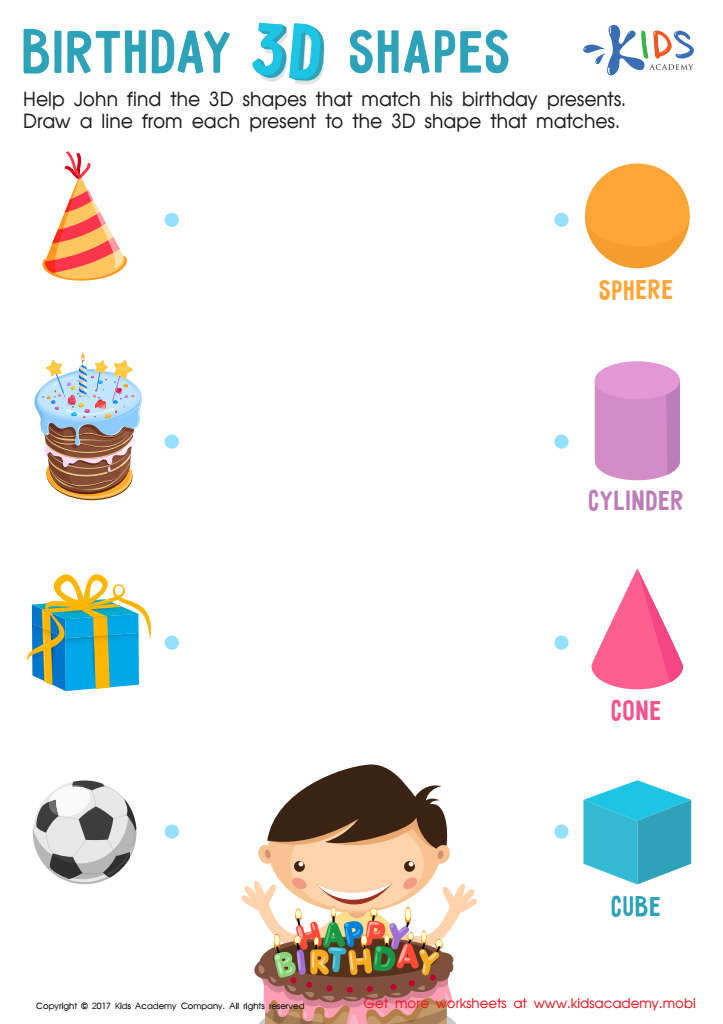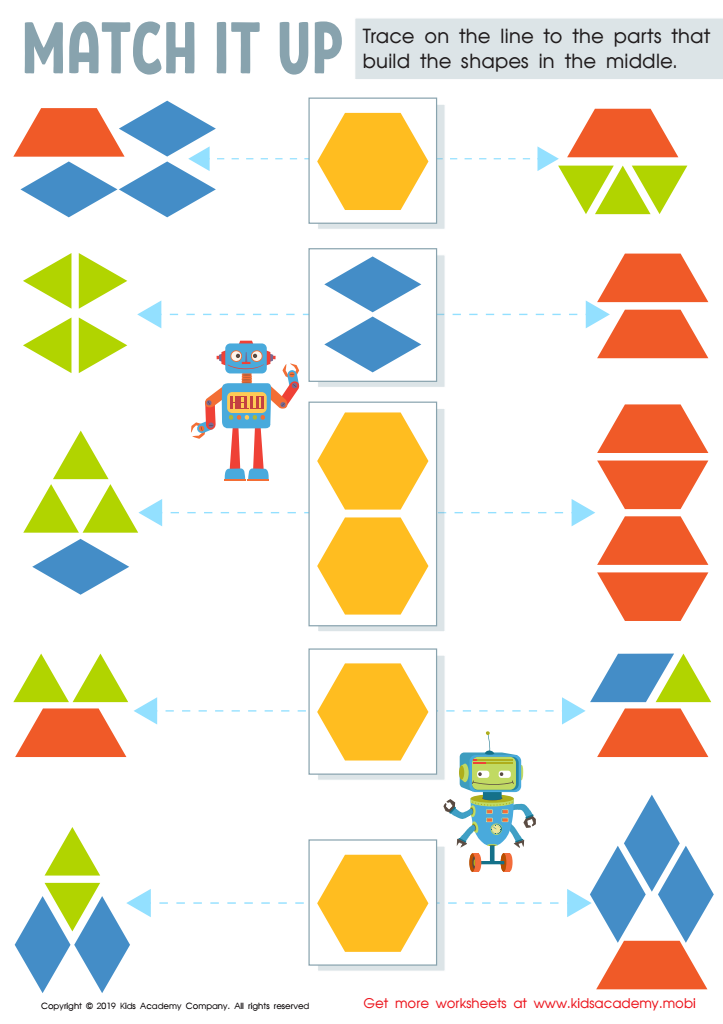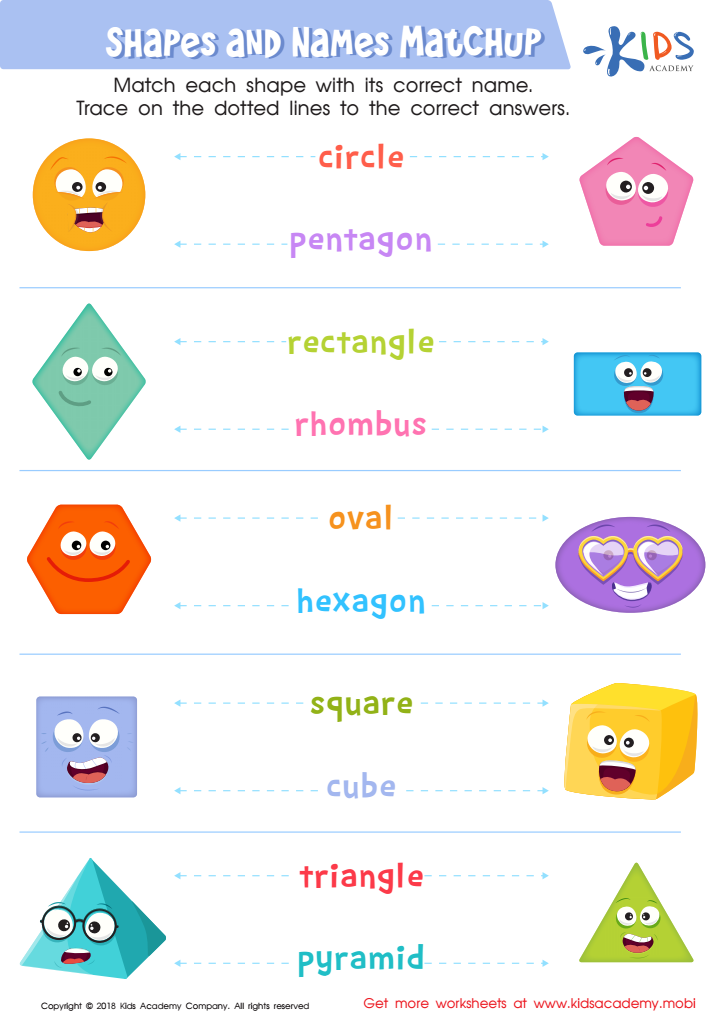Vocabulary enhancement Extra Challenge Geometry Worksheets for Ages 6-9
3 filtered results
-
From - To
Boost your child's geometry skills with our Vocabulary Enhancement Extra Challenge Worksheets designed for ages 6-9! These interactive worksheets seamlessly combine geometry concepts with vocabulary building, ensuring your child not only understands shapes and spatial reasoning but can also effectively communicate their ideas. Each worksheet features engaging activities that make learning fun while promoting critical thinking and language development. Perfect for at-home or classroom use, these extra challenges will inspire young learners to explore geometric terms and enhance their vocabulary in creative ways. Encourage confidence and mastery in math with these valuable resources tailored specifically for young minds!


Birthday 3D Shapes Worksheet


Match It up Worksheet


Shapes and Names Matchup Worksheet
Enhancing vocabulary, especially in subjects like geometry, is crucial for children ages 6-9 as it lays the foundation for their overall academic success. As young learners progress through school, a strong vocabulary helps them articulate thoughts clearly and comprehend complex concepts. In geometry, familiarizing students with specific terms such as "angles," "shapes," "symmetry," and "volume" empowers them to engage fully with the material, allowing for deeper understanding.
When parents or teachers prioritize vocabulary enhancement through extra challenges in geometry, they provide students with opportunities to connect linguistic skills with mathematical reasoning. Such challenges encourage critical thinking, problem-solving abilities, and creativity in approaching geometric problems. Additionally, mastering these concepts can bolster children's confidence and encourage a positive attitude towards learning.
Moreover, introducing geometric vocabulary through fun, interactive activities can captivate young learners’ interest and make learning enjoyable. This not only fosters a love for mathematics but can also enhance their communication skills—helping them explain their thought processes and solutions more effectively.
In summary, vocabulary enhancement in geometry is vibrant and integral; it aligns with cognitive skills development, ensuring students become proficient and enthusiastic learners. By supporting these efforts, parents and teachers contribute significantly to building crucial life skills.
 Assign to My Students
Assign to My Students





























